You Can’t Kill Us All: “Assassination Nation” and What it Reveals About the Violence and Volatility of Teenage Girlhood in the Age of Social Warfare.
Introduction
Sam Levinson’s Assassination Nation is about as subtle as a punch in the gut. However, that doesn’t make it any less artful and profound. Levinson’s social commentary, horror send up on exploitation films could have gone extremely awry had it been in the wrong hands. Thankfully, it went gloriously right — mixing the bombastic with the serious to create a memorable and meaningful experience.
The film riffs off the Salem Witch Trials and is set in an idyllic suburban town named Salem that could quite literally exist anywhere in the United States. Four teenage girls find themselves caught in the midst of a nefarious internet hacker who leaks all of their personal information, messages, photos, videos, documents, etc. on the internet for the whole town to consume. Naturally, dark secrets come out and stoke long-held bigotry, hypocrisy, and anger.
The film highlights society’s foibles and the pressures teenage girls face in this deeply flawed and misogynistic society — while drenching it all in blood, neon lights, and a catchy soundtrack. Assassination Nation is not for the faint of heart, and comparisons to other pitch black social commentary teen satires like Heathers are extremely apt.
It’s an uncommonly empathetic film despite its subject matter and doesn’t judge its main four teenage protagonists. In fact, it’s so empathetic and understanding that actress Hari Nef, who portrays Bex, was caught off guard when reading the script having at first been skeptical of the project — and rightfully so, because it was a script about teenage girls written by a man. Levinson actively works to create a varied and authentic story of teenage girlhood that includes all the violence and volatility of female adolescence.
From here on out, there will be heavy spoilers for Assassination Nation, as well as triggering content regarding transphobia, transmisogyny, racism, etc. Tread with caution.
Bex Warren
Assassination Nation offers us a tale of trans girlhood via the character Bex, straying from the cisnormative narrative that one often sees in teen films of any genre. The film sets itself apart in casting as well. Because instead of employing a cis actress to portray a trans character, Levinson chose to cast the extremely talented actress Hari Nef, who is trans.
Writing wise, Bex’s character is treated with the same delicacy and respect that her cis friends are given. She similarly faces societal pressures and dangers. But the film keeps in mind that Bex’s experience will be different compared to Lily, Em, and Sarah’s own experiences. Bex is allowed to be a full character in her own right, beautifully rounded and drawn out, and not a token trans character thrown in by a cis writer looking for an undeserved pat on the back.
Bex is a vibrant person much like her friends. Her vivacious nature and beautiful smile are infectious, as well as her blatant lack of apology to people who do reject her for living her truth. She’s a stunning amalgam of strength and vulnerability.
Bex connects with a handsome and popular jock that she shared a class with named Diamond. Diamond is attracted to Bex, and the feelings are obviously mutual. At a house party, the two finally hook up and have sex, but the encounter turns sour when Diamond asks Bex not to tell anyone about them.
Bex’s expression when Diamond asks her to keep quiet and subsequently leaves Bex alone with her thoughts is one of heartbreaking disappointment. What could have been a beautiful moment solidifying her relationship with Diamond is turned into one of pure shame because he is embarrassed for people to know that he has been intimate with a trans girl.
One of the biggest myths that our toxic society perpetrates is that it makes a cis man gay to love or be attracted to a trans woman, and that many men’s attractions to trans women are either based in gross fetishism or hampered by an overarching shame. This violent and incorrect myth makes dating for trans women dangerous. Many trans women are killed by men simply because they are attracted to them. Transmisogyny is a dangerous area of toxic masculinity that often isn’t explored in media.
The movie faces transmisogyny and transphobia head on, taking a peek into the frighteningly narrow minds of the other jocks at school when they learn that Diamond and Bex hooked up due to Diamond becoming a victim of the grand hacking scheme. The boys are all in the locker, testosterone and hate for all that they don’t care to understand. They want to teach Diamond a lesson for stepping outside of what they deign acceptable. But above all, they want to punish Bex for being alive.
This echoes painfully of real life events where trans women are murdered. Trans women, specifically black trans women, are at a higher risk for being victims of assault or murder. Just in the last few weeks of May this year, Muhlaysia Booker, Claire Legato, and Michelle Simone — all three Black trans women — were murdered.
The jocks’ hate flares. And when chaos reigns and common sense is eschewed, they decide to strike against Bex. When Bex is separated from her friends, the group of boys attempt to hang her from a light pole, and they expect Diamond to do the honors of putting the noose around Bex’s neck. This scene has some of the most disturbing imagery despite having no blood or gore.
The violence behind the act is enough to make it sickening and chilling. Nef gives an unforgettable performance in just those scenes alone, allowing herself to go to a vulnerable and all too realistic place.
Bex suffers excessively at the hands of a transphobic and transmisogynistic society. However, she has a safe place with her friends who love and support her. The comfortable relationship between the girls allows for growth in all of them. At one point, Lily suggests that she believes Bex should be able to sympathize with the mayor of the town who was the first victim of the hacker.
The mayor, who ran on a strictly anti-LGBTQ+ platform, was outed as having extramarital affairs with men due to the hack. Pictures of him in lingerie circulated, as well. Bex is confident enough in her friendship with Lily to stop Lily and set her straight about how she has no sympathy for the man because he put on such a fierce anti-LGBTQ+ face as a politician.
The girls are allowed to have these frank kind of conversations with one another. It’s certainly refreshing to see teenage girls portrayed as having serious conversations where they are not on the verge of pulling each other’s hair out. It’s a small scene but a remarkably mature one that shows both Bex’s beautifully unapologetic nature and the security of her friendship with the girls.
Em Lacey
Em, portrayed by the wonderful Abra, is the lone person of color in the group and seems to be one of the few black women in a predominantly white town. Of course, being a black woman in an overwhelmingly white area is difficult in and of itself. Em has found a niche in her friend group that includes her sister Sarah along with Lily and Bex.
One can tell that Em and Sarah grew up with an extremely liberal and sex positive single mother. Their mother, Nance, offers a non-judgmental place for the girls to hang out. Most of the times that they are seen together outside of school is at Em and Sarah’s home.
Em is endearingly quirky, even flaunting the fact that she has written a several thousand word Nancy Grace fanfic and has a deep love for true crime. Em doesn’t fear being herself, no matter how restrictive society can be.
Sadly, a lot of subtext about Em’s character is left out in the final cut of the film. However, deleted scenes included in the film’s home release fill in some blanks in her character. I can say that I wish that they had spent just a little more time on her character and fleshing her out in the final cut. Because what we know about her is compelling. With the amount that we know about her, she subverts many, many racist societal stereotypes about black women.
Her character refuses to be pigeonholed into many damaging archetypes that many black characters fall victim to. Though the lack of her being as fleshed out in the final cut arguably relegates her to black best friend trope, which in itself is harmful and perpetrates the idea that black people, specifically women, are there to prop up white feelings and development. This is one of the biggest drawbacks to the character and the movie.
What Em faces in two of the deleted scenes from the movie are reminiscent of the terrible treatment of black women in the real world. One instance is at a house party where Em is in a group of her peers having a conversation. What starts out as a conversation about the hacker devolves into what can only be classified as casual racism. A white boy who is part of the conversation suggests that the hacker is a racist and that he himself is very sensitive to these matters. Em is on the brink of eye rolling due to the white boy’s behavior and is wholly exasperated already.
Em asks the boy, “Does my life matter?” and of course, the response that she gets is that of course her life matters because all lives matter. One of the classic cop outs that white people pretending to be well-meaning use to masquerade their insidious micro-aggressions against black people and the Black Lives Matter movement. To make the matter even worse, as he continues to dig his casual racist hole he says, “I don’t even see color.” The scene shows how Em has to face not only overt shows of racism but casual instances as well.
The second deleted scene involves the cops coming to the Lacey household to terrorize Em and Sarah. The cop insinuates that the town is filled with good people and that the Laceys are none of the sort. This scene is jarring due to the amount of black women who are harassed and murdered by the police. The horrific death of Sandra Bland immediately comes to mind when thinking about deaths of black women by the hands of law enforcement.
The cop makes it clear that he views Em and Sarah and their mother as lesser members of Salem’s townsfolk and a part of the larger problem that is at hand with the town. The two girls are huddled on the couch, rendered nearly speechless as the cop literally talks down to them like they are quite literally worthless. When the officer finally departs from the Lacey household, a weary Em lays her head on Sarah’s shoulder and says, “I hate cops.”
It’s not too hard to imagine that this isn’t the first time Em has had a bad run in with the police. Her tired expression and demeanor speak volumes to how beat down by the systemic abuses of society Em is. It’s no surprise that the officer who terrorizes the Laceys is involved in a mob that wants to attack the girls and eventually takes them hostage.
The imagery of a young black woman with her hands bound in the back of a cop car with tears streaking her face is heavily perturbing and an echo of the reality of the society that we live in.
Lily Colson
Lily Colson, portrayed by fresh faced newcomer Odessa Young, is a paradox. She’s extremely smart and deep thinking, all the while being comfortable in her body and her sexuality. Like many girls, she holds back a lot of her deeper thoughts and is much more poignant than she lets the world see. She projects a mask to the world, and her friends are the only ones who truly know Lily and accept her for who she is.
Many people in her life refuse to see her as she truly is and, therefore, write her into a role that they can handle more easily. They essentially dumb Lily down in their minds.
To her boyfriend Mark, she’s just a piece of cute little arm candy. To Nick, the older man she’s been having somewhat of an affair with, she’s a young girl to take sexual advantage of. And to her severely repressed and backwards thinking parents, she’s a mouthy contrarian. In the end, none of these people take her seriously, and in the cases of Mark and Nick, they only exploit her for their own needs.
One of Lily’s downfalls is her want to be wanted an adored, her want to be seen as an equal in a romantic relationship. Her relationship with Mark is immediately identified by the viewer as lackluster and unfulfilling for Lily. Her needs are not being met on a sexual or a mental level.
Toward the beginning of the narrative, Em boldly asks Lily if Mark has gone down on her yet. When Lily answers no, Em espouses the wisdom, “Let me just break it down to you like this. Men who don’t eat pussy in this day and age are straight-up sociopathic, okay?”
As the film progresses, we see that the relationship is grossly imbalanced. Mark and Lily fight constantly, and he often slut shames her, bringing up how she dresses and insinuates that she acts stupidly. In a voiceover, Lily muses on the explosive nature of her relationship with Mark and how he was the first boy to really give her attention, the first boy who hurt her, and the first person she wanted to hurt back.
Nick is honestly no better than Mark. Lily was 16 when they first met and she babysat his daughter. When he would drive the underage Lily home, he would have deeper discussions with her than she had had with any other man in her life. One night, while driving her home, he put his hand on Lily’s thigh and, thus, made the first move. The relationship evolved into a secret one that consists mostly of sexts between the two.
These type of predatory relationships are not uncommon in reality. There is an uneven power dynamic between Lily and Nick. Nick was her employer, a married adult man who knew better and should not have ever pursued Lily, who was clearly disgruntled with her relationship with her boyfriend. He took advantage of Lily’s youth and her yearning. Lily realizes this all almost too late.
When the hacker divulges all of Nick’s data onto the internet, a plethora of pictures and videos that Lily has sent him are made available for public consumption. Luckily, Lily was smart enough not to show her face, and Salem goes mad trying to figure out who the mystery girl is. Mark eventually concludes that the girl is Lily due to a familiar birthmark on her back.
In a tense and near panic attack-inducing scene, Mark and his friends attack Lily. Mark’s friends hold her down, and for a few terrifying minutes, the audience is unsure of what he is about to do to her. Mark takes a picture of Lily’s birthmark and outs her online as the girl in the photos from Nick’s leak. While Lily finds herself betrayed by Mark, Nick, and her parents, her girls stick by her through all of her hardships.
One particularly tender scene takes place between Lily and Bex. Lily tells Bex about how the affair with Nick started. Lily is clearly troubled and terrified that she will lose her friendships over this, but Bex provides her with a loving and reassuring presence. Bex knows that, despite it all, Lily is in all actuality a victim and, at her core, a good person. What could have been a moment of judgement is one that is exceedingly tender.
Lily’s parents subsequently throw her out of the house due to her identity as the girl in the pictures being exposed. She has nowhere else to turn but to travel to the Lacey household on foot. While she’s making the trek to the Laceys’, she is catcalled by some men in a car.
The men yell lewd things at her and tell her that she might as well take what she can get because no one will want her after seeing the leaked pictures and the videos. One of the men pursues Lily on foot with a knife, causing Lily to have to stand her ground and improvise a counter attack with a shovel found in a neighbor’s yard.
This is nowhere near the end of Lily’s problem when a fellow student erroneously outs Lily as the hacker. The false claim leads to a group of men breaking into the Lacey home with the intent of harming the girls and bringing them to their warped idea of justice. A desperate Lily makes her way to Nick’s house, but Nick has sinister plans of his own.
Nick’s feelings of entitlement toward Lily become pretty clear in the interactions that follow, and soon, Lily realizes that she is in danger. Nick is planning on killing her. In the scene that ensues, Lily uses her wits and resourcefulness to defend herself and ultimately comes out on top by killing Nick in an altercation. It is then that Lily takes it upon herself to go out and save her friends. She had to be her own hero before she could help them.
Sarah Lacey
Sarah, portrayed by an exuberant Suki Waterhouse, is the quietest of the four. But she exudes a wonderfully good-natured spirit. She comes off as a bit of a cheerful stoner, happy in her being and her life. Even though she is more subdued, she doesn’t allow her voice to go unheard. When Sarah says something, she means it, and it’s often quite profound. For example, at a party, a boy proclaims proudly, “Porn taught me how to fuck.” Sarah quickly replies, “You only think porn taught you how to fuck.”
It is safe to say that Em and Sarah’s mother did a good job raising intelligent and independent thinking young ladies. Not a lot is revealed about how their family unit came to be—Sarah is white whereas Nance and Em are black—but it’s obvious that they are tight knit unit.
We know less about Sarah than we even do any of the other girls. Most of what the viewer gleans about Sarah is from watching how her character interacts with others and her connections to them.
Deleted scenes give us more insight into her character and just how bold she can be. Sarah’s mother Nance becomes a victim of the hack, and this results in not only Nance’s affair with a woman’s husband coming to light but also that Sarah had an abortion. With the state of our current political climate, it’s no surprise that Sarah becomes a target because she exercised her right to choose.
The superintendent makes a point to call Sarah into her office under the guise of checking in on her. This taut scene is intercut with a scene of Nance being verbally and physically assaulted by the haughty wife of the man that she had been seeing. Between the condescending nosy superintendent and the visuals of a white woman ruthlessly attacking a black woman, the deleted scene is difficult to stomach.
Sarah is blunt and to the point in the scene, not allowing any sort of false niceties. She already knows that this is either about her abortion or Nance being hacked or both.
People who have abortions are typically secretive about having the procedure due to backlash from the public. It’s obvious that this is why Sarah, a teenage girl who knew that she was too young to take on the responsibilities of a child and be forced to grow up too fast or thrust an unwanted child into an already overloaded foster care system, kept her abortion a tightly guarded secret.
It’s easy to infer that the only ones who knew about this were Nance, Em, Bex, and Lily — people who absolutely would not betray her trust. Sarah looks the superintendent dead in the eye and says, “You wanna make a bet? I bet some guy will call me a whore today.” This line shows that Sarah has been bracing herself because she knows what is to come.
In another deleted scene, matters get even worse when the police pay the Lacey household a visit. The cop has vitriol to spare when it comes to Sarah having an abortion and insinuates that the Laceys are little more than trash in what he considers a good town of moral and righteous people. The ironic hypocrisy in the scene is exceedingly rich.
The officer makes repeated references to Sarah’s abortion and makes a snide remark that she had to “take a trip out of town because she couldn’t keep her knees together.” That particular comment in stingingly realistic. Go on any social media platform, and if someone is talking about abortion, some man or self-loathing woman is making comments about how women need to keep their legs closed as if women are simply self-impregnating and are completely responsible for birth control efforts.
(Oh, and if you didn’t get the memo, being on birth control also makes you a whore, but that’s beside the point.) Sarah is being slut shamed by the police in her own home, a blatant abuse of power that she is only able to sit and stare defiantly in response.
Conclusion
Assassination Nation is an in-your-face look at the violence and volatility of teenage girlhood in America today. Some complaints I have seen about the movie is that it is unrealistic. But when you think about it, is it really that unrealistic?
We live in a world that polices women and doubly and even triply polices them if they are black, trans, or a member of a similarly marginalized community. If you think it’s unrealistic, you’re either not paying attention or are too wrapped up in your own inherent privileges to care. It only seems right to end this by quoting Lily’s impassioned speech at the end of the film that points out the hostile world that has been created for girls and women to live in.
“My name is Lily Colson. I’m eighteen years-old, and I don’t know if me and my friends are going to live through the night. This entire fucking town wants to kill us. And they may say that it’s because they thought I was behind it or that I’m a whore, I’m immoral, I’m a homewrecker, I deserve it, I have it coming. Well, guess what. I didn’t hack anybody’s shit. I didn’t do it, and I don’t know who did. As for being a whore, a homewrecker, immoral? Sure. It doesn’t hold a fucking candle to your righteousness. That’s the real sickness here, your righteousness and hypocrisy. It’s the simple fact that you can’t live by the rules you set, yet you still pretend. This is your world. You built this. If it’s too strict, tear it the fuck down. But don’t look at me. Don’t take your hate out on me, I just got here. And I have no clue where to go because from the moment I arrived, all I was ever given were orders. ‘Smile. Open up. Cross your legs. Spread your pussy. Speak softer. Scream louder. Be quiet. Be confident. Be interesting. Don’t be so difficult. Be strong. Be an angel. Be a whore. Be a princess. Be anything you want to be. Even the President of the United States of America.’ Just kidding. Fuck you. You still want to kill me? Rape me? Stab me? Shoot me? Let’s go. Rally your fucking crew. Grab your guns and hide behind your masks. You want to do this in real life now? Give it your best shot. Because you’ve prepared me my whole life for this. You may kill me, but you can’t kill us all.”


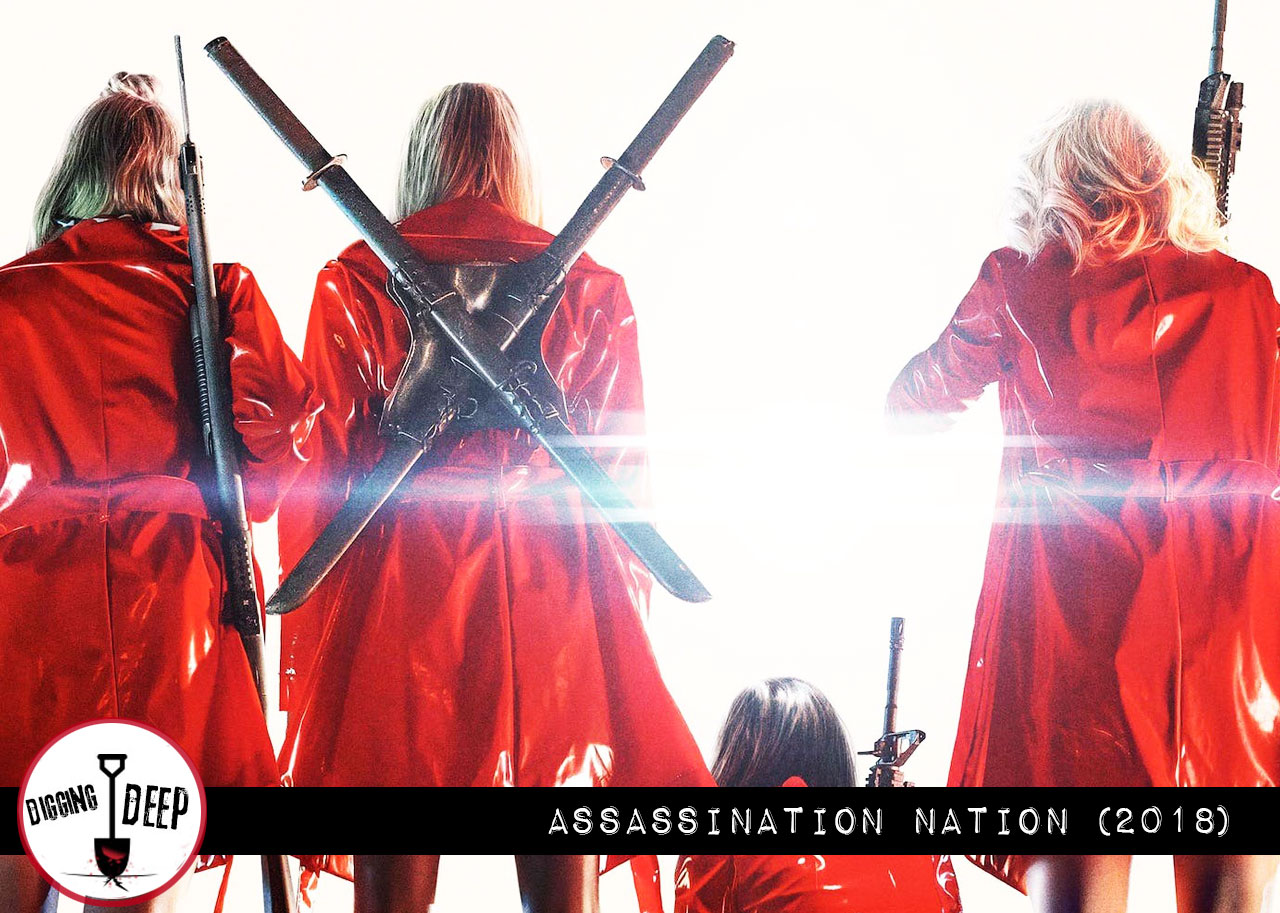

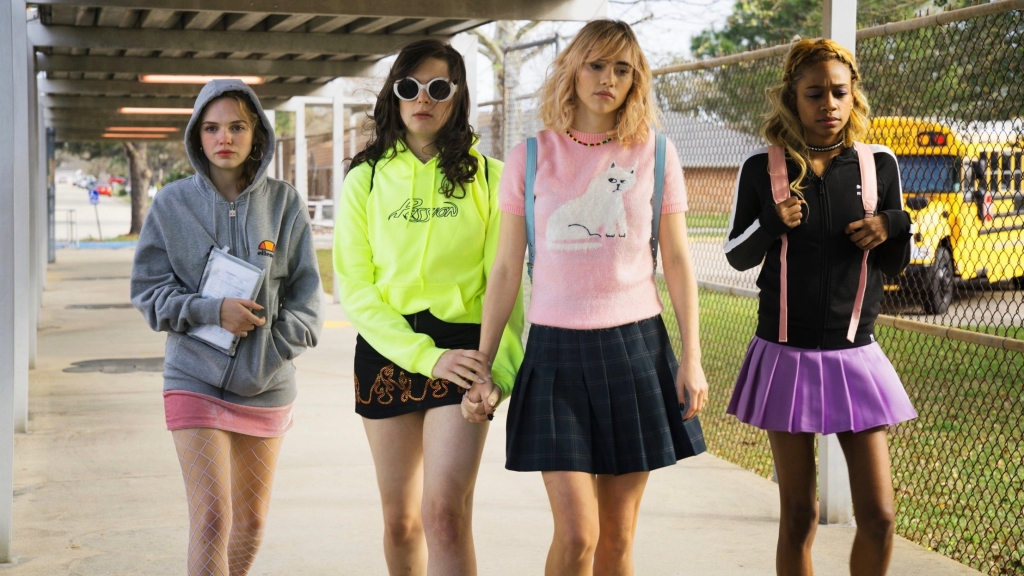

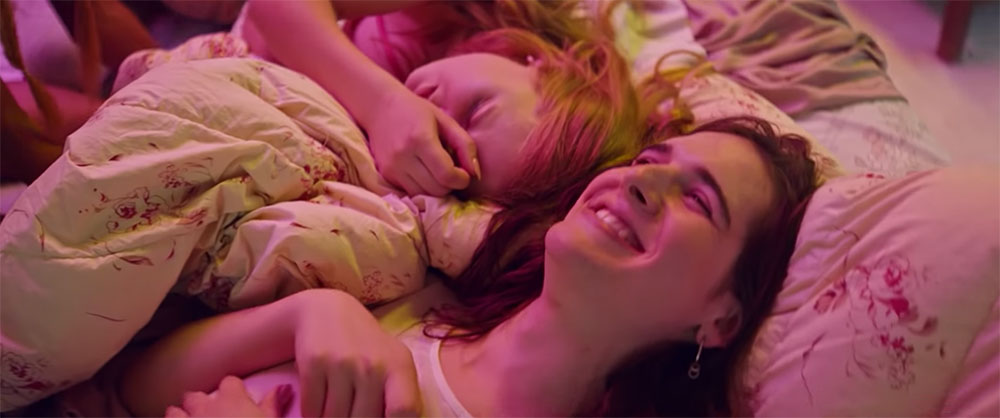

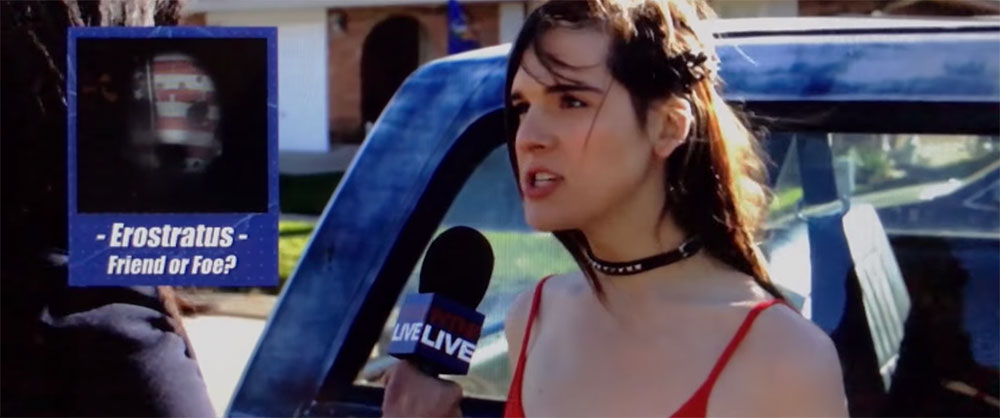
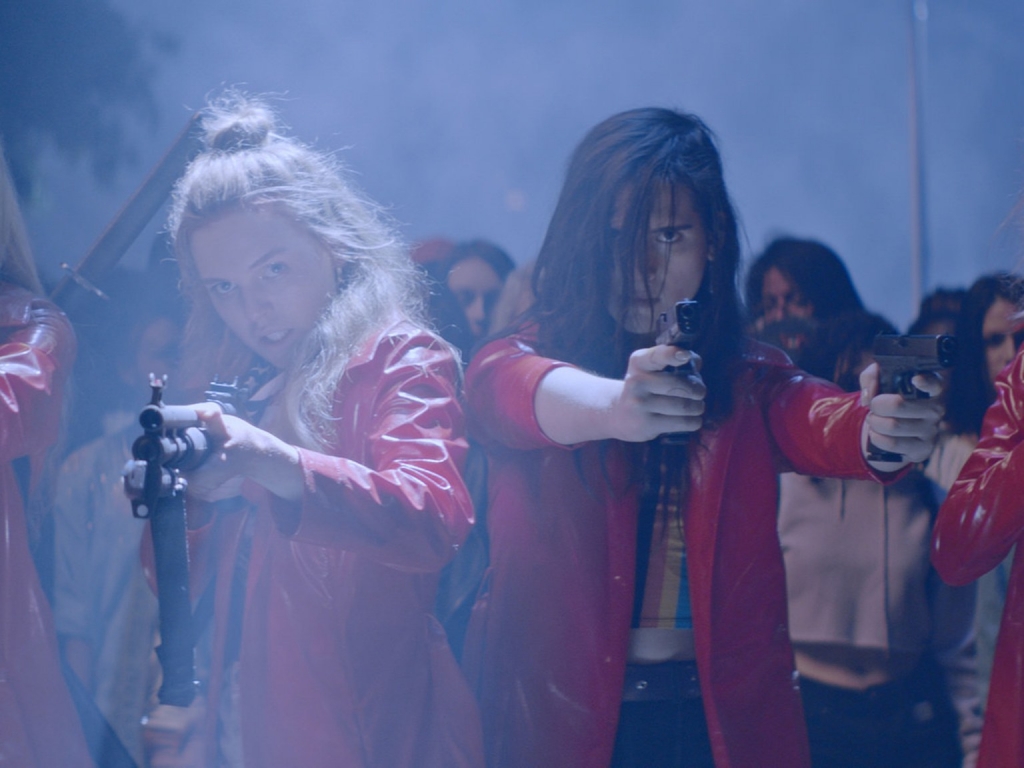
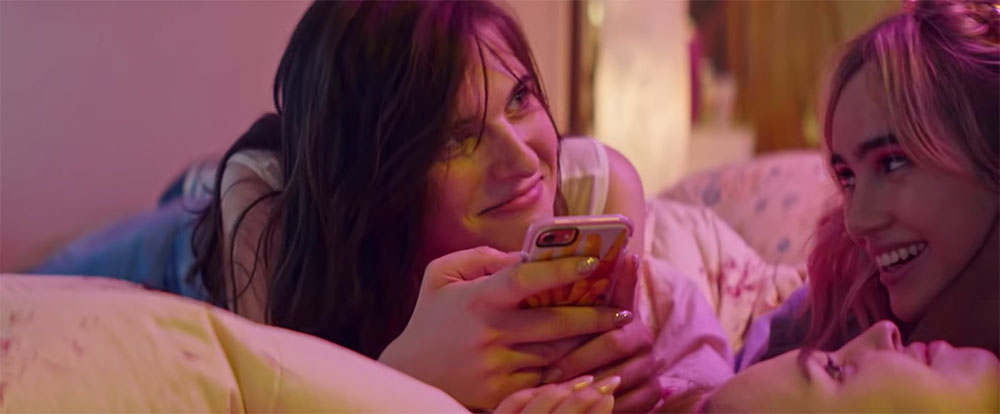
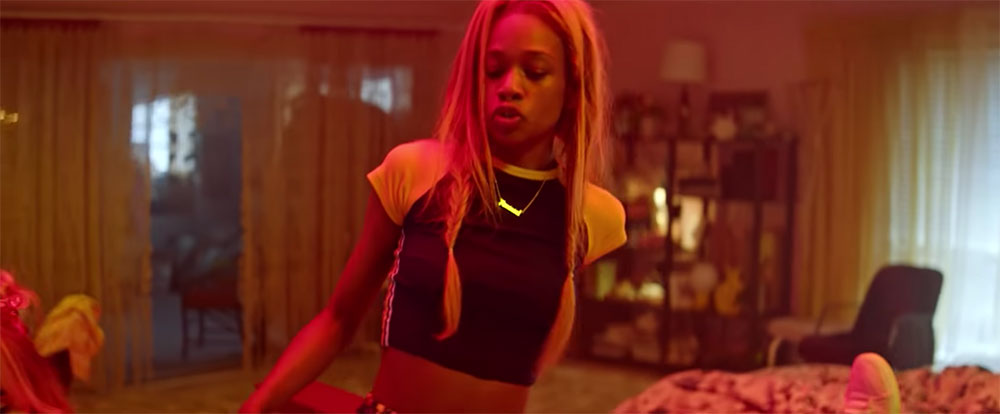


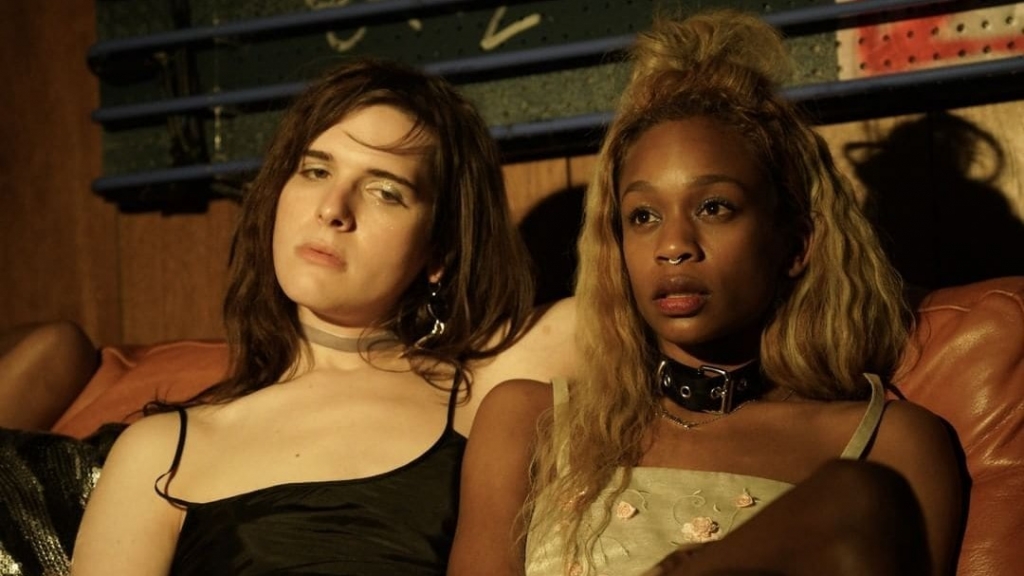
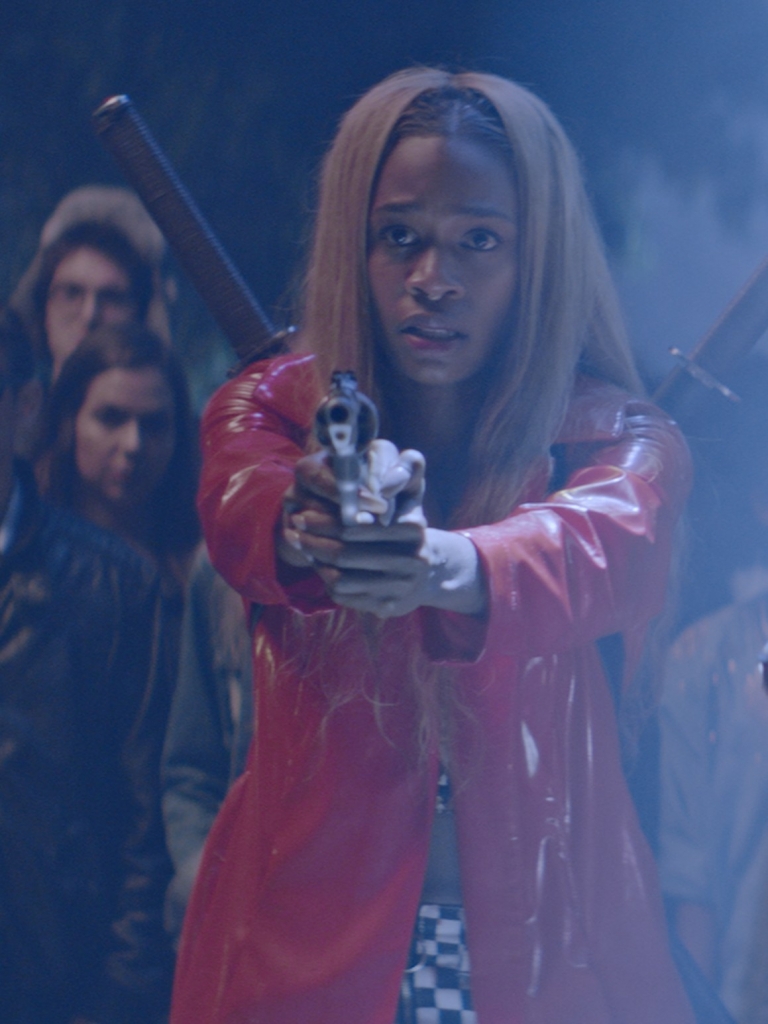
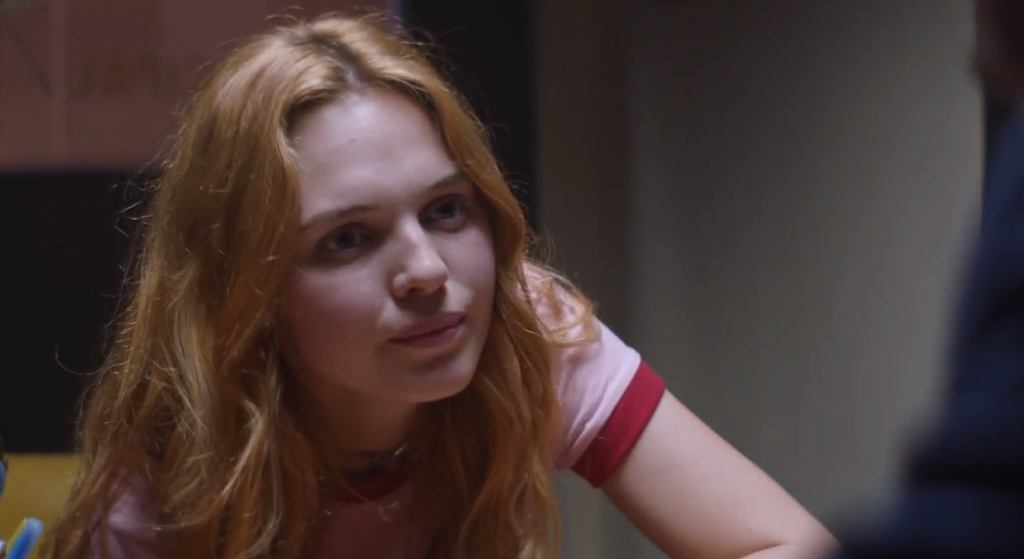
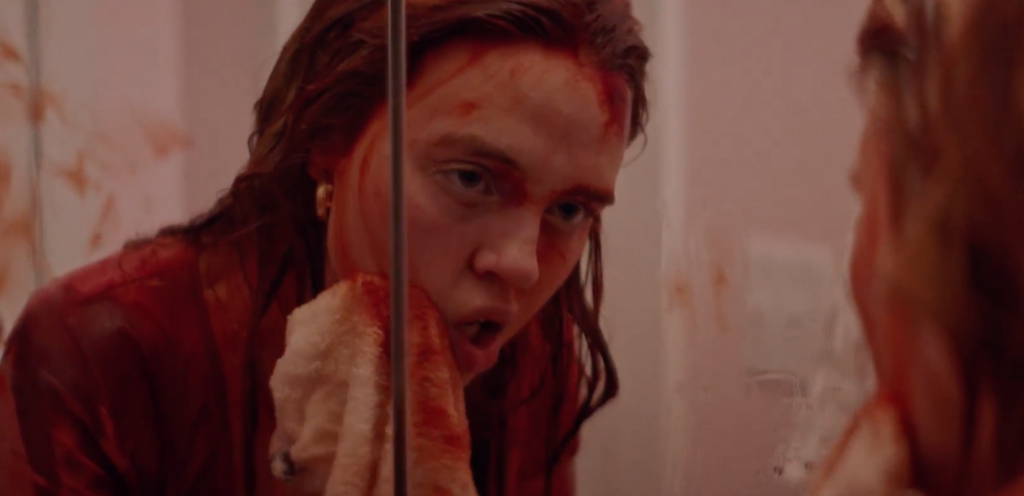
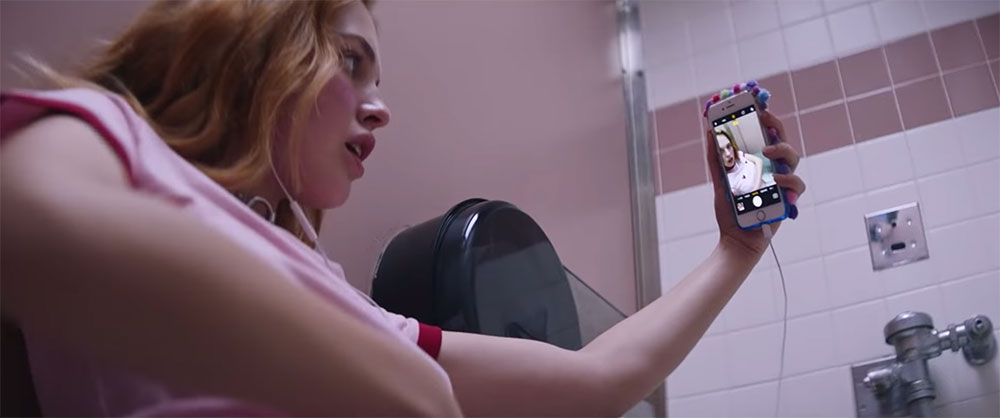
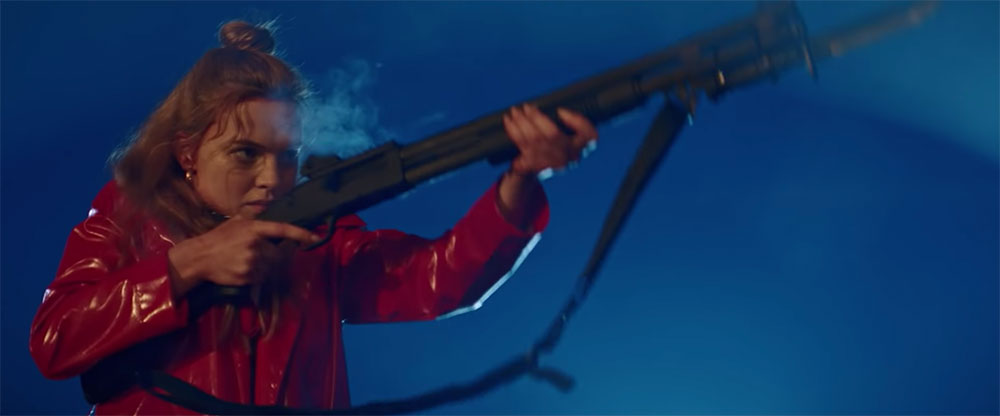
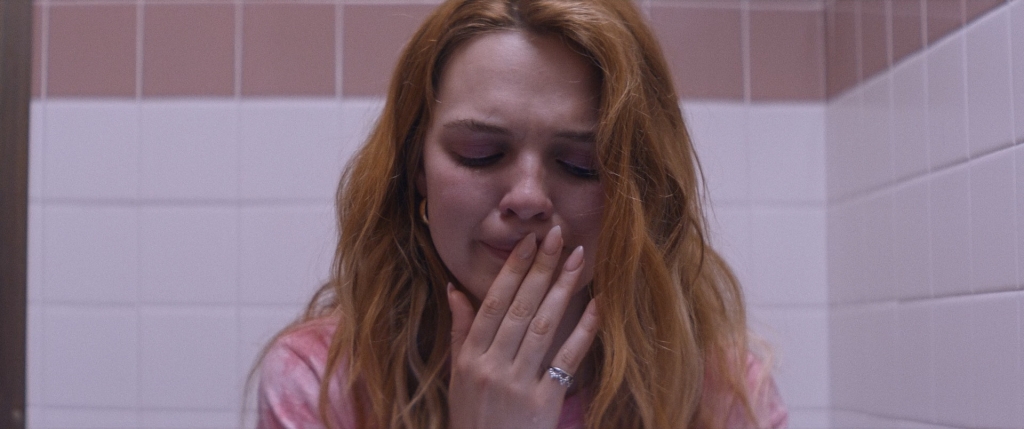
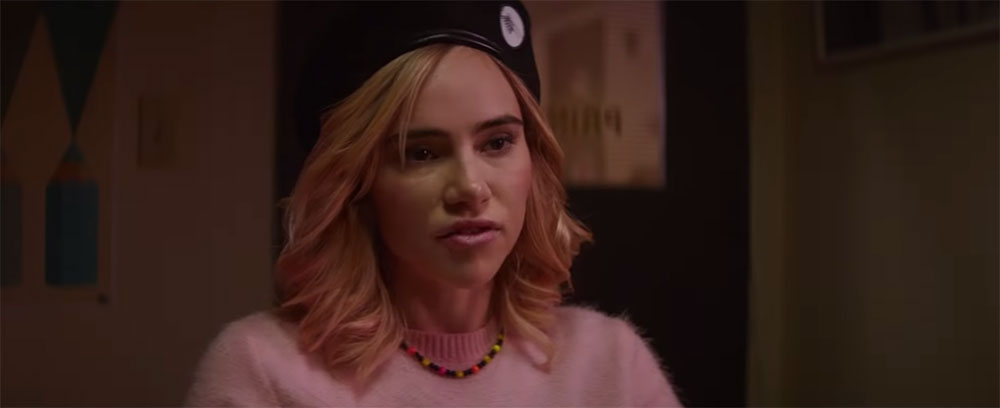
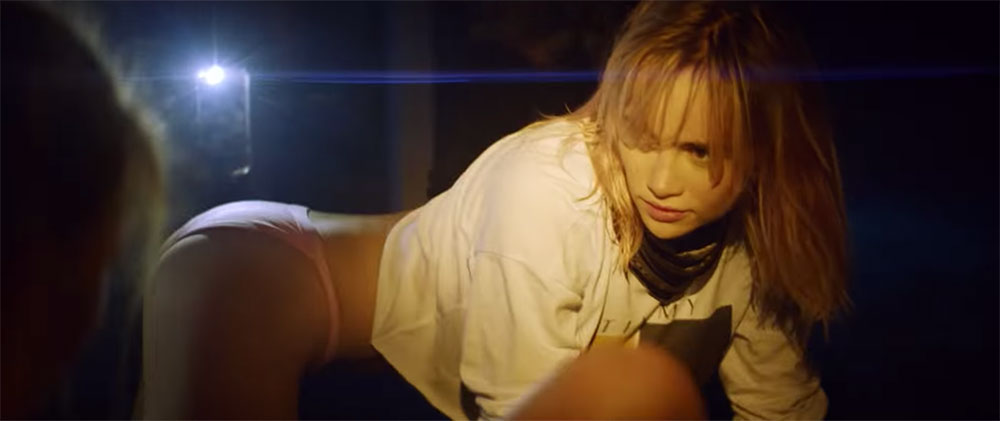

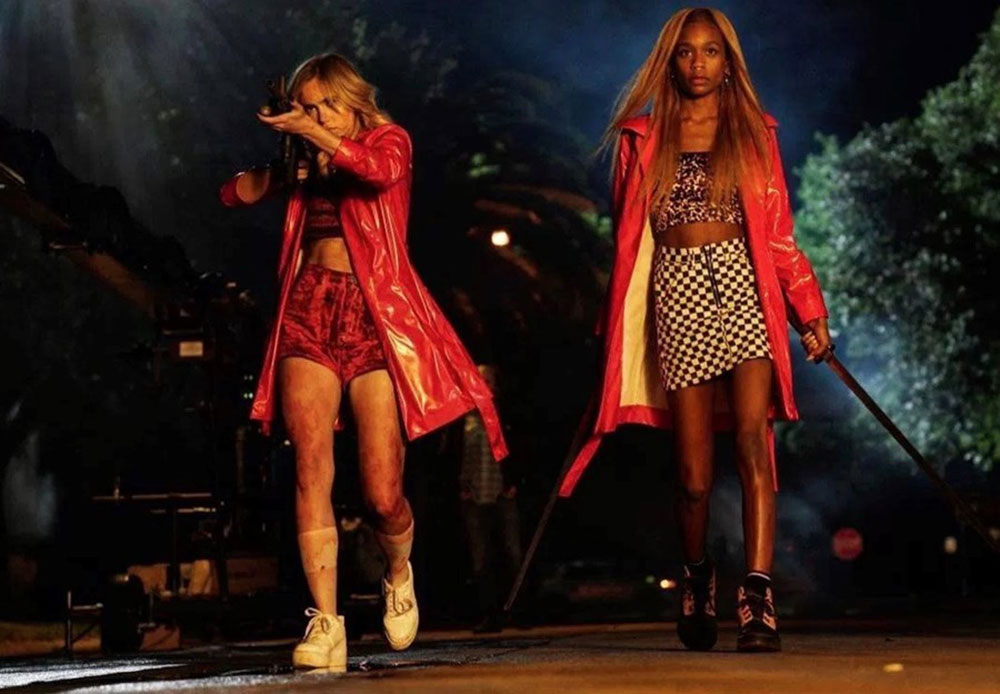
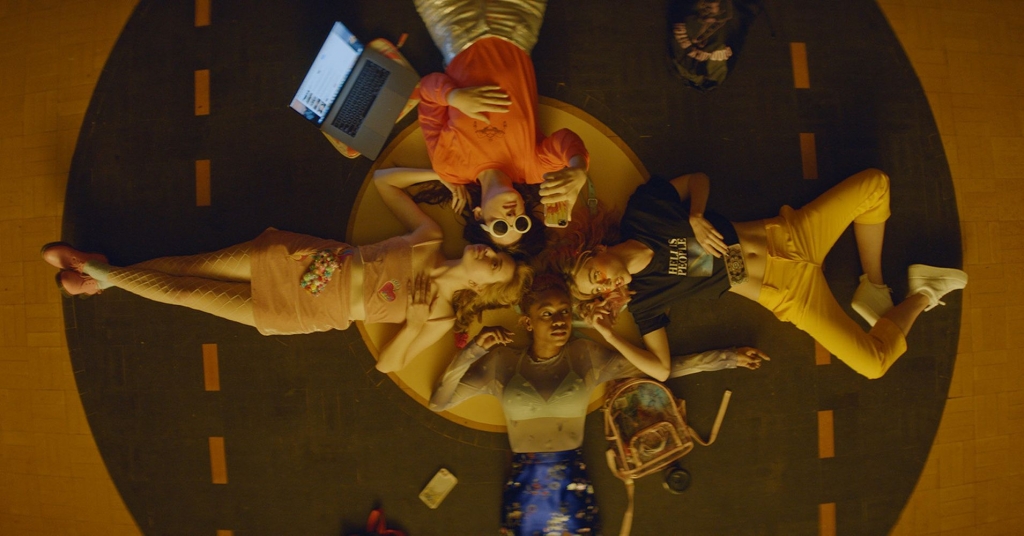
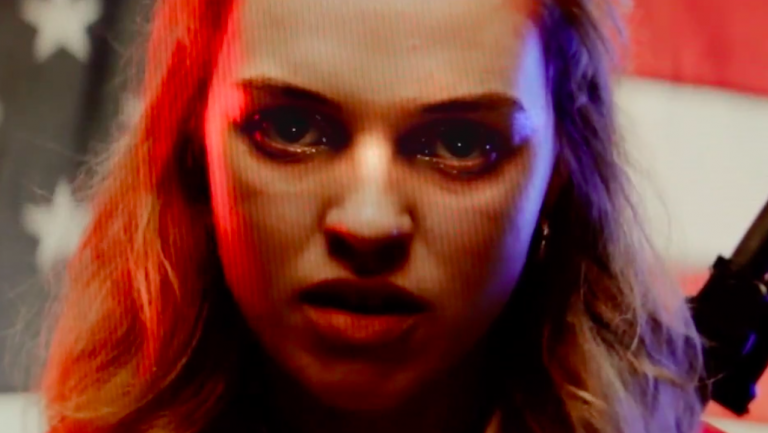









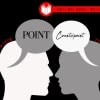

Follow Us!